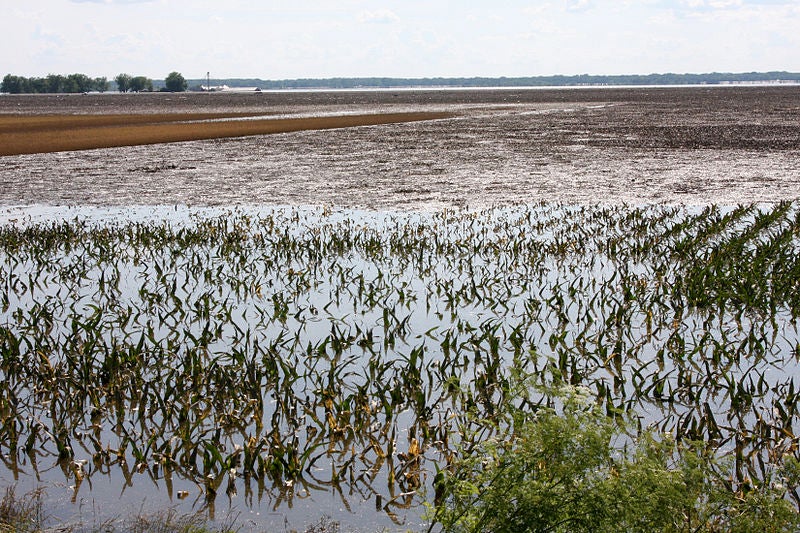A report released today by a subcommittee of the U.S. Commodity Futures Trading Commission, Managing Climate Risk in the U.S. Financial System, examines the threat that increasingly extreme and volatile weather poses to the stability of financial markets, including U.S. agricultural markets. Representatives from EDF served on the 35-member panel.
The report found climate risks pose a wide range of threats to U.S. agriculture — including heat stress on farmworkers, livestock and crops, soil and water quality degradation, more frequent supply chain disruptions and productivity declines.

Last spring, farmers in the Midwest were hit with record spring flooding, washing away crops and livestock. This year, many of the same farmers were hit with the double whammy of a derecho in the middle of a pandemic.
These threats translate into financial risks for agricultural businesses and finance providers, undermining the financial health of community banks, agricultural banks and local insurance markets, which could leave small businesses, farmers and households without access to critical financial services.
Despite these challenges, farmers — and the financial system that supports them — have the resources and capacity to build resilience.
Climate-resilient farming practices that pay
Many well-known conservation practices like no-till, cover crops, extended crop rotations and nutrient use efficiency generate both financial and environmental value by reducing production costs and reducing crop yield risk during adverse weather conditions.
For example, an analysis of yield data collected in a national cover crop survey found that farmers experienced a 3% increase in their corn yield and a 5% increase in soybeans after five consecutive years of cover crop use. In the drought year of 2012, farmers reported even greater yield increases when they used cover crops — nearly 10% in corn and 12% in soybeans.
However, the challenges of transitioning to new practices in the first several years prevent many farmers from achieving these longer-term benefits.
Business leaders from food companies to agricultural lending institutions can support farmers’ transition to conservation practices and help build resilience across the U.S. food, agriculture and finance sectors.
How business and financial leaders can help
The central message of the CFTC report is that U.S. financial regulators must recognize that climate change poses serious emerging risks to the U.S. financial system, and they should move urgently and decisively to measure, understand and address these risks. It also urges the financial community not to wait for regulators to act, but rather to innovate and develop solutions of their own.
EDF recently released a report, Financing Resilient Agriculture: How Agricultural Lenders Can Reduce Climate Risk and Help Farmers Build Resilience, which details how agricultural lenders can assess their climate risk and realign decision-making and loan products to better value climate resilience.
Food companies are also working to remove barriers to adoption of good farming practices that benefit the environment. For example, Cargill, which also served on the CFTC subcommittee with EDF, is a founding investor in the Soil and Water Outcomes Fund, a collaborative, market-based program to accelerate soil health and water conservation across Iowa farmland and provide a critical new source of financial incentives to Iowa farmers.
John Hartmann, global sustainability lead for Cargill Agricultural Supply Chain, shared that, “At Cargill, we believe the future path should generate positive incentives that realize the potential of nature and agricultural based climate change solutions and avoid adding financial strain to agricultural producers.”
With a commitment to address climate risk and collaborate on solutions, we don’t have to rely solely on farmer grit to weather the storms ahead. Agricultural businesses and finance providers can support farmers in their transition to a more resilient future.









